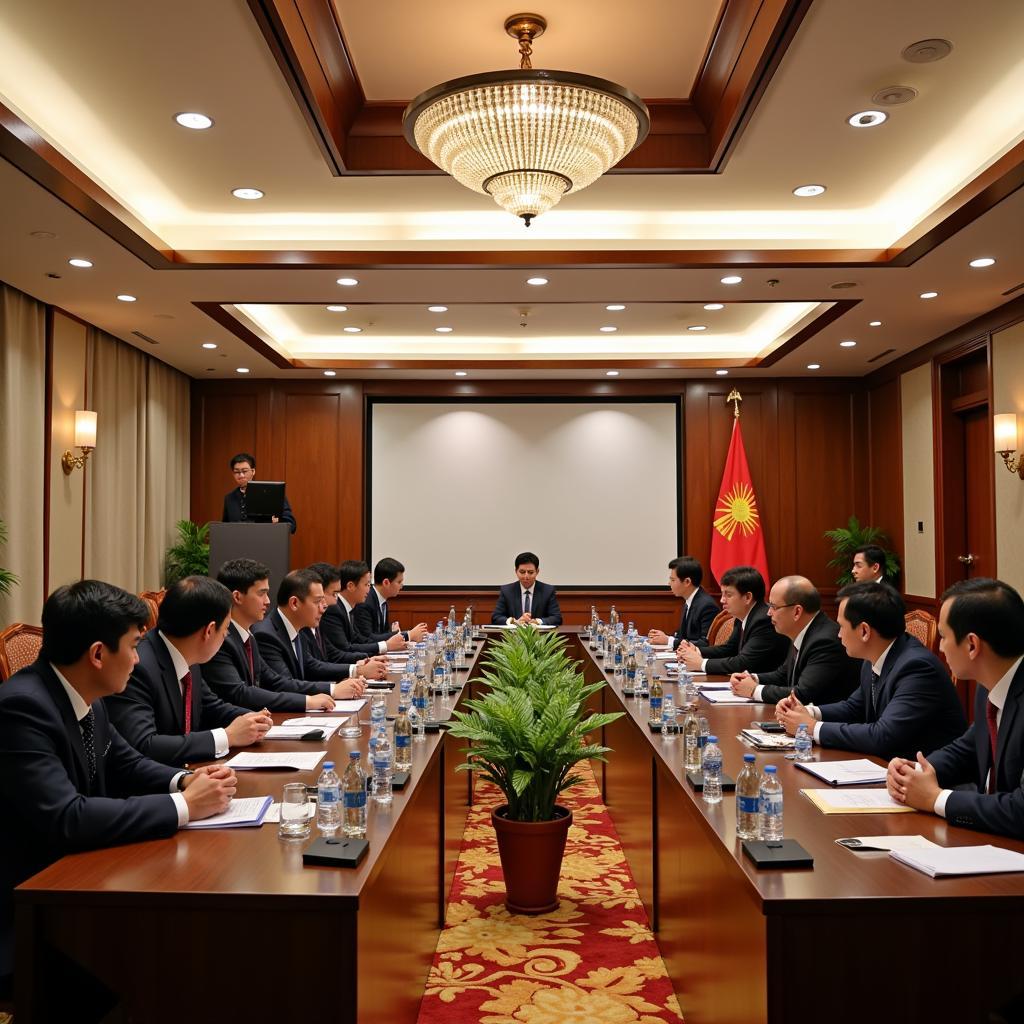The term “ASEAN Guidelines for PFO” refers to a set of principles and procedures established by the Association of Southeast Asian Nations (ASEAN) for the “Presence of Foreign Operatives” within the region. These guidelines aim to promote transparency, cooperation, and mutual understanding among ASEAN member states regarding the presence and activities of foreign operatives, particularly those related to defense and security matters.
The Importance of PFO Guidelines in ASEAN
The ASEAN region, characterized by its diverse political landscapes and strategic importance, faces various security challenges. These include transnational crime, maritime disputes, and the evolving regional power dynamics. In this context, the presence of foreign operatives, while potentially beneficial for cooperation, also raises concerns about transparency and potential interference.
The ASEAN Guidelines for PFO are crucial for several reasons:
- Building Trust and Confidence: By establishing a clear framework for managing the presence of foreign operatives, ASEAN aims to reduce suspicion and mistrust among member states.
- Enhancing Cooperation: The guidelines encourage dialogue and information sharing among ASEAN countries regarding the activities of foreign operatives, which can facilitate cooperation on shared security concerns.
- Safeguarding Sovereignty: By promoting transparency and accountability, the guidelines help ensure that the presence of foreign operatives does not undermine the sovereignty or national interests of ASEAN member states.
- Maintaining Regional Stability: By providing a mechanism for managing a sensitive issue, the guidelines contribute to maintaining peace and stability in the region.
Key Principles of ASEAN Guidelines for PFO
While the specific content of the ASEAN Guidelines for PFO remains confidential, some of the key principles are:
- Respect for Sovereignty: Foreign operatives are expected to respect the sovereignty and territorial integrity of ASEAN member states.
- Non-Interference: Activities of foreign operatives should not interfere in the internal affairs of ASEAN countries.
- Transparency and Consultation: ASEAN member states are encouraged to be transparent about the presence and activities of foreign operatives within their territories and to consult with each other on matters related to PFO.
- Cooperation and Coordination: The guidelines promote cooperation and coordination among ASEAN member states in managing the presence of foreign operatives, including information sharing and joint initiatives.
 ASEAN Security Forum Discussing PFO
ASEAN Security Forum Discussing PFO
Implementation and Challenges
Implementing the ASEAN Guidelines for PFO presents both opportunities and challenges.
Opportunities:
- Strengthened Regional Security Architecture: The guidelines can contribute to a more robust and comprehensive regional security architecture in Southeast Asia.
- Enhanced Counter-Terrorism Efforts: By promoting information sharing and cooperation, the guidelines can bolster efforts to counter terrorism and transnational crime.
- Improved Crisis Management: In the event of a security crisis, the guidelines can facilitate communication and coordination among ASEAN member states.
Challenges:
- Maintaining Confidentiality: Balancing transparency with the need to protect sensitive information related to PFO is a key challenge.
- Differing National Interests: ASEAN member states have diverse perspectives and interests, which can complicate the implementation of a common approach to PFO.
- Lack of Enforcement Mechanisms: The guidelines are largely voluntary, and there are no formal enforcement mechanisms to ensure compliance.
The Future of PFO Guidelines in ASEAN
The ASEAN Guidelines for PFO represent an evolving framework for managing the presence of foreign operatives in the region. As security challenges in Southeast Asia become increasingly complex, the guidelines will need to adapt to address new threats and maintain their relevance.
Potential areas for further development include:
- Establishing Clearer Definitions: Providing more precise definitions of “foreign operatives” and their activities.
- Developing Practical Implementation Mechanisms: Exploring ways to make the guidelines more concrete and actionable.
- Enhancing Regional Cooperation: Strengthening mechanisms for information sharing, joint training, and capacity building among ASEAN member states.
Conclusion
The ASEAN Guidelines for PFO represent a significant step towards addressing the complex issue of foreign operatives in the region. By promoting transparency, consultation, and cooperation, the guidelines aim to build trust and confidence among ASEAN member states while safeguarding their sovereignty and maintaining regional stability. While challenges remain in their implementation, the guidelines provide a valuable framework for managing a sensitive security concern and fostering a more secure and stable Southeast Asia.
FAQ
1. What does PFO stand for?
PFO stands for “Presence of Foreign Operatives.”
2. Are the ASEAN Guidelines for PFO publicly available?
The specific content of the guidelines is confidential and not publicly available.
3. How do the guidelines benefit ASEAN member states?
The guidelines promote transparency, build trust, enhance cooperation, and contribute to regional stability.
4. What are some of the challenges in implementing the guidelines?
Challenges include maintaining confidentiality, addressing differing national interests, and the lack of formal enforcement mechanisms.
5. How can I learn more about ASEAN’s security initiatives?
You can visit the official website of the ASEAN Secretariat or explore resources from reputable think tanks specializing in Southeast Asian security.
For further information and assistance, please contact:
Phone Number: 0369020373
Email: aseanmediadirectory@gmail.com
Address: Thôn Ngọc Liễn, Hiệp Hòa, Bắc Giang, Việt Nam
Our dedicated customer support team is available 24/7 to assist you.